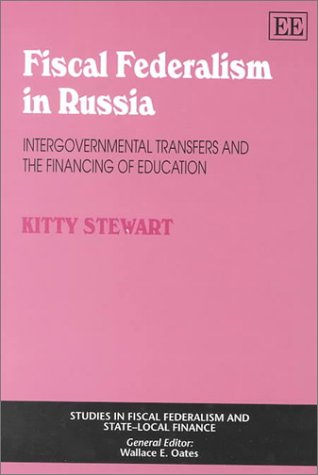Studies in Fiscal Federalism and State-local Finance
1 total work
Fiscal Federalism in Russia examines the combined impact of decentralisation and diversity on regional equality of service provision and in particular the provision of education. The book begins with an analysis of the system of intergovernmental transfers and goes on to explore the nature and extent of disparities in education spending, paying particular attention to regions where spending has fallen furthest.
The book also contains a case study of the allocation decisions affecting the education sector within a single region, Novgorod Oblast, in North-West Russia. Based entirely on field research, the study provides a rare insight into the decision making process at regional and local level, as well as an analysis of the extent of internal revenue and spending disparities.
Academics, researchers and those interested in decentralisation or the economics of transition will warmly welcome this detailed analysis of the direction and impact of inter-governmental transfers in Russia.
